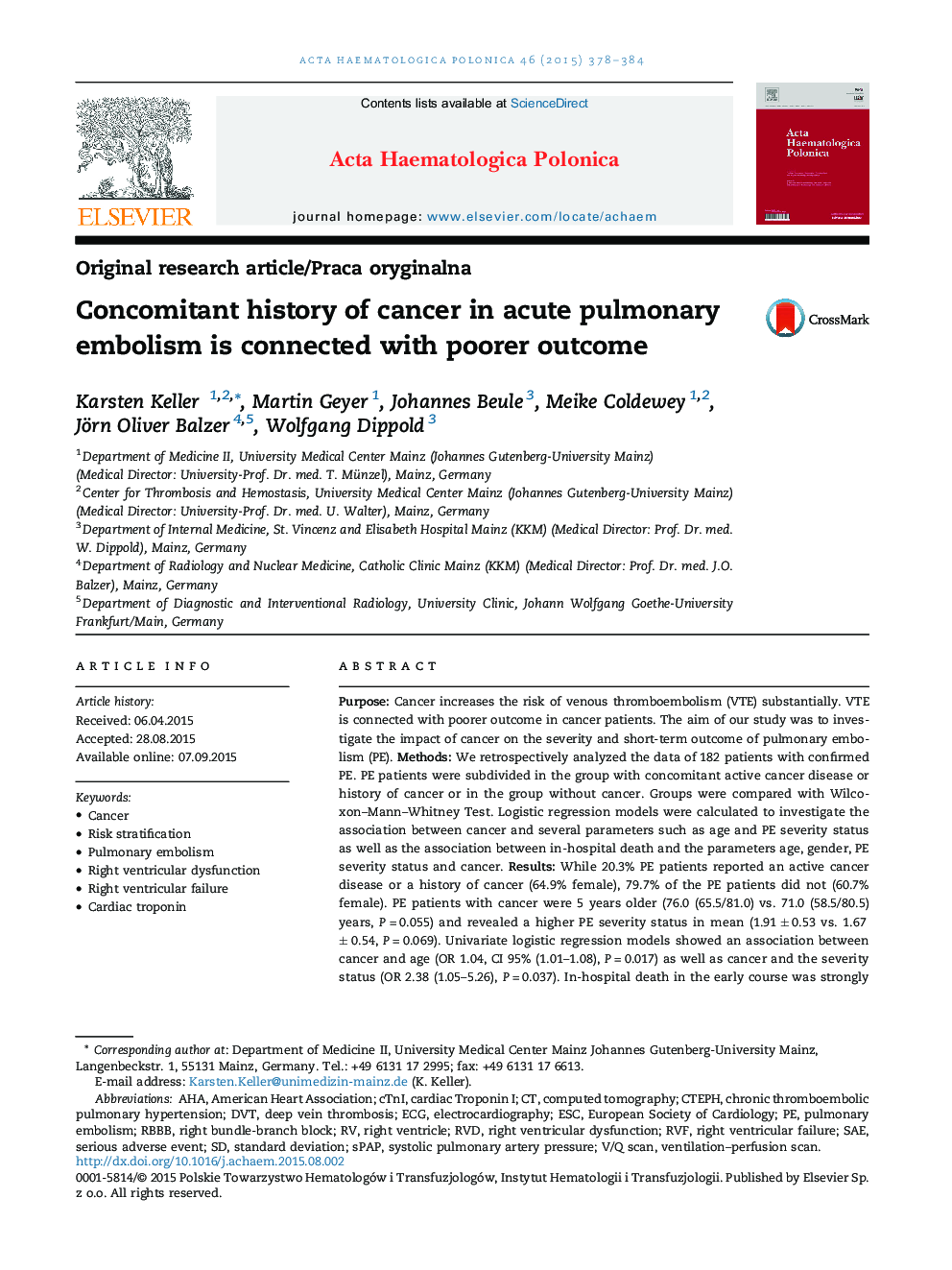| Article ID | Journal | Published Year | Pages | File Type |
|---|---|---|---|---|
| 3328080 | Acta Haematologica Polonica | 2015 | 7 Pages |
Purpose: Cancer increases the risk of venous thromboembolism (VTE) substantially. VTE is connected with poorer outcome in cancer patients. The aim of our study was to investigate the impact of cancer on the severity and short-term outcome of pulmonary embolism (PE). Methods: We retrospectively analyzed the data of 182 patients with confirmed PE. PE patients were subdivided in the group with concomitant active cancer disease or history of cancer or in the group without cancer. Groups were compared with Wilcoxon–Mann–Whitney Test. Logistic regression models were calculated to investigate the association between cancer and several parameters such as age and PE severity status as well as the association between in-hospital death and the parameters age, gender, PE severity status and cancer. Results: While 20.3% PE patients reported an active cancer disease or a history of cancer (64.9% female), 79.7% of the PE patients did not (60.7% female). PE patients with cancer were 5 years older (76.0 (65.5/81.0) vs. 71.0 (58.5/80.5) years, P = 0.055) and revealed a higher PE severity status in mean (1.91 ± 0.53 vs. 1.67 ± 0.54, P = 0.069). Univariate logistic regression models showed an association between cancer and age (OR 1.04, CI 95% (1.01–1.08), P = 0.017) as well as cancer and the severity status (OR 2.38 (1.05–5.26), P = 0.037). In-hospital death in the early course was strongly connected with the PE severity status (OR 36.60 (2.99–448.68), P = 0.0049), but not with cancer (P = 0.65). Conclusions: Concomitant history of cancer in acute PE was associated with higher PE severity status and therefore poorer outcome.
